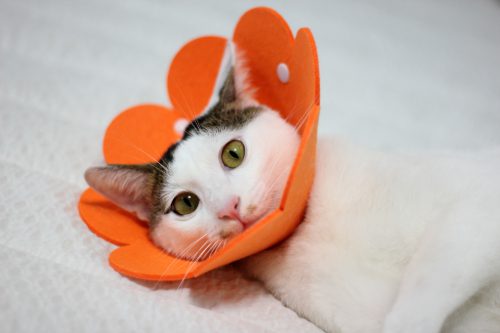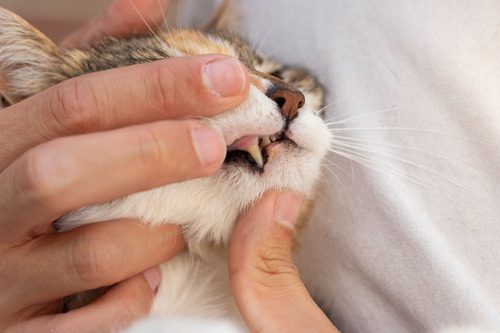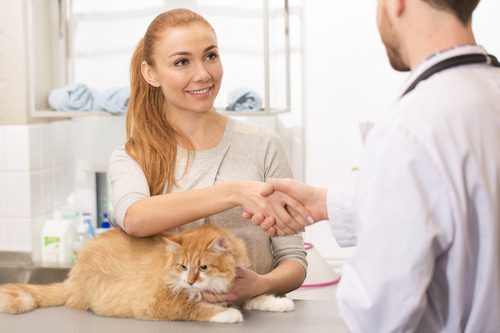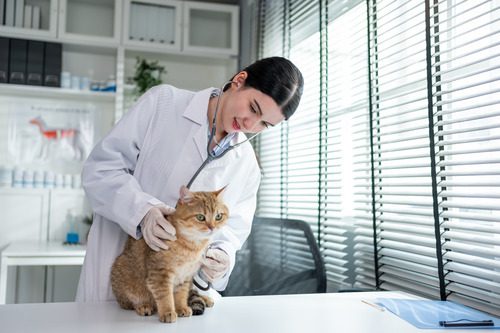Benefits of Spaying or Neutering a Cat
Deciding to spay or neuter your cat is a responsible and beneficial choice for both your pet and the community. At Cornerstone Veterinary Hospital of Clifton Park, we understand the importance of this decision and want to provide you with comprehensive information about the advantages of these procedures. Spaying and neutering offer numerous health, behavioral, and societal benefits. If you have any questions or are ready to schedule an appointment, please call us at (518) 383-6254.

Health Advantages for Cats
Prevents Reproductive Cancers
Spaying or neutering your cat significantly reduces the risk of reproductive cancers. For females, spaying eliminates the risk of ovarian and uterine cancers and greatly decreases the chances of mammary gland tumors, which can be malignant in about 90% of cats. Neutering males prevents testicular cancer and reduces the risk of prostate issues. These surgeries are proactive measures that contribute to a longer, healthier life for your cat.
Reduces Risk of Infections
Spaying female cats eliminates the risk of pyometra, a potentially life-threatening uterine infection that can occur in unspayed females. This condition requires emergency surgery if not addressed promptly. Neutering male cats decreases the chances of developing infections in the prostate and reduces the incidence of urinary tract infections. By opting for these procedures, you are safeguarding your cat’s health and well-being.
Controls Hormonal-Related Issues
Unspayed and unneutered cats can suffer from hormonal imbalances that lead to various health problems. Females in heat may experience discomfort and behavioral changes, while intact males are prone to aggression and roaming behaviors. Spaying and neutering stabilize hormone levels, preventing these issues and ensuring a more balanced and contented pet.
Feline Behavioral Benefits
Reduces Aggression and Roaming
Neutered male cats are less likely to exhibit aggressive behavior and are less inclined to roam in search of a mate. This reduces the risk of injuries from fights or accidents while roaming. Spayed females also experience fewer behavioral changes associated with heat cycles, leading to a more harmonious household environment.
Minimizes Spraying and Marking
Intact cats, especially males, often mark their territory by spraying urine. This behavior is driven by hormones and can create a challenging living situation for pet owners. Neutering reduces or eliminates this marking behavior, resulting in a cleaner and more pleasant home environment.
Promotes Better Social Interactions
Spayed and neutered cats tend to be more affectionate and better companions. They are less likely to exhibit dominance-related behaviors and are generally more sociable. This can enhance the bond between you and your pet, making your interactions more enjoyable and stress-free.
Community Impact
Reduces Overpopulation
One of the most significant benefits of spaying and neutering is the reduction of cat overpopulation. Each year, millions of cats end up in shelters, and many are euthanized due to a lack of homes. By spaying or neutering your cat, you are contributing to the solution of this crisis and helping to prevent the birth of unwanted kittens.
Decreases Stray and Feral Cat Populations
Spaying and neutering help control the stray and feral cat populations. Uncontrolled breeding among stray and feral cats leads to more animals living in poor conditions, often suffering from hunger, disease, and injury. Reducing the number of breeding cats through these procedures helps manage these populations more humanely and effectively.
Alleviates Shelter Burdens
Animal shelters are often overwhelmed with the number of cats in need of homes. By spaying or neutering your cat, you are helping to reduce the burden on these shelters, allowing them to allocate resources more effectively and provide better care for the animals they house.
The Spaying and Neutering Process
Before the surgery, your veterinarian will conduct a thorough physical examination to ensure your cat is healthy enough for the procedure. They may recommend blood tests to check for any underlying conditions that could affect anesthesia. It’s important to follow pre-surgery instructions, such as fasting your cat the night before.
The Day of Surgery
On the day of the surgery, your cat will be given anesthesia to ensure they do not feel any pain during the procedure. The surgery is relatively quick, and most cats can go home the same day. Spaying involves removing the ovaries and uterus in females, while neutering involves removing the testicles in males. Both procedures are performed with the utmost care to ensure your cat’s safety and well-being.
Post-Surgery Care
After the surgery, your cat will need some time to recover. Your veterinarian will provide detailed post-operative care instructions, which may include keeping your cat calm and limiting their activity, monitoring the surgical site for signs of infection, and ensuring they do not lick or chew at the stitches. Most cats recover quickly and resume their normal activities within a few days.
Common Misconceptions About Spay & Neuter Surgery
Myth: Spaying or Neutering Will Change My Cat’s Personality
- Many people worry that spaying or neutering will drastically change their cat’s personality. In reality, these procedures often result in a calmer and more balanced pet without altering their fundamental personality traits. Your cat will still be the same loving companion you know and cherish.
Myth: It’s Better to Let My Cat Have One Litter First
- There is no health benefit to allowing your cat to have a litter before being spayed. In fact, spaying before the first heat cycle offers the best protection against reproductive cancers and other health issues. It’s a common misconception that having a litter first is beneficial, but the risks far outweigh any perceived advantages.
Myth: Spaying or Neutering Is Too Expensive
- While there is a cost associated with spaying and neutering, it is a one-time expense that can prevent many future health problems and behavioral issues. Investing in your cat’s health now can save you money on veterinary bills in the long run.
Next Steps for Your Cat’s Well-Being
Spaying or neutering your cat is a responsible decision that brings numerous health, behavioral, and societal benefits. By taking this step, you are ensuring a better quality of life for your cat and helping to address the larger issue of cat overpopulation. If you have any questions or would like to schedule an appointment, please contact Cornerstone Veterinary Hospital of Clifton Park at (518) 383-6254. Our team is here to support you and provide the best care for your beloved pet.
Recent Posts
My Cat Lost a Fang Tooth: What Do I Do?
My Cat Lost a Fang Tooth: What Do I Do? It’s always a little jarring to discover…
FHO Surgery in Cats
FHO Surgery in Cats When a cat experiences hip pain that limits movement and quality of life,…
Can Cats Get Parvo?
Can Cats Get Parvo? Parvo is a word that strikes fear into the hearts of many dog…
About Us
Originally opened as Animal Care Hospital by Dr. Mark Johnston in 1989, the hospital became Cornerstone Veterinary Hospital in 2015 when it was purchased by Drs. Alan and Lisa Knott. The name 'Cornerstone' holds a special place in their hearts, representing not only their Christian faith but also their commitment to being the cornerstone of the community in which they practice. As a family-owned and operated practice, every pet is treated as part of the family, ensuring they receive the highest standard of care. The team at Cornerstone Veterinary Hospital is dedicated to building lasting relationships with clients and their beloved pets, striving to be the cornerstone of the community in which they practice.



